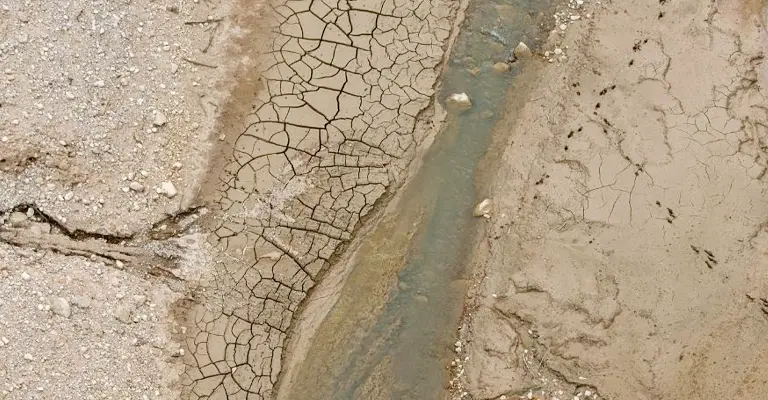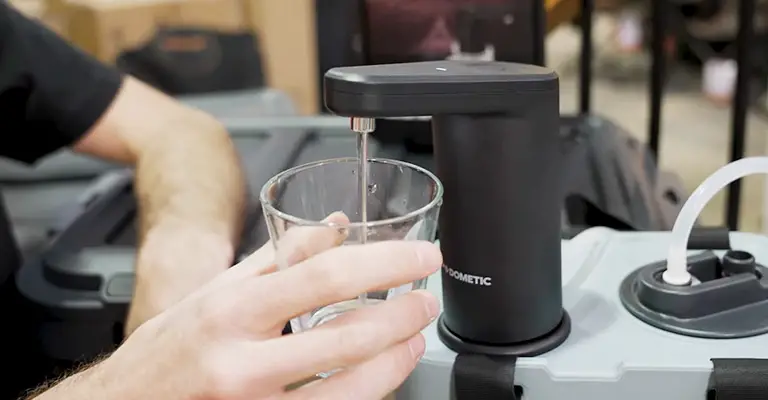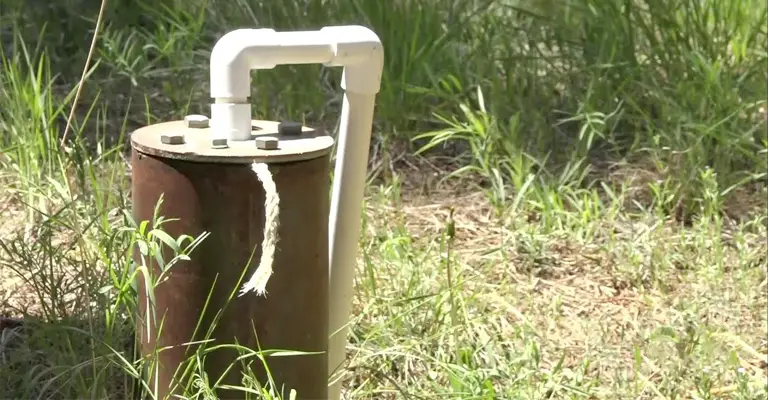When it comes to the fundamental resource of water, we rely on wells to provide us with a steady supply for our daily needs.
But what happens when a neighbor decides to drill a new well? Could their actions potentially disrupt the delicate balance of our own well system?
Yes, it is possible for a neighbor drilling a new well to affect your well, depending on the specific circumstances and geological conditions.
The drilling of a new well can potentially impact the groundwater levels and flow patterns in the surrounding area, which can in turn affect nearby wells, including yours.
How A Neighbor Drilling A New Well Can Affect My Well
Here are a few potential ways in which drilling a new well by a neighbor could affect your well:
1. Decreased Water Levels

If the neighbor’s new well taps into the same aquifer or groundwater source as your well, the increased extraction of water from the shared source can lead to a drop in water levels.
This can result in reduced water availability or even cause your well to run dry.
2. Changes In Water Quality

Drilling activities can introduce contaminants into the groundwater, especially if proper drilling and construction practices are not followed.
If the aquifer or groundwater source is interconnected, there is a possibility that the contamination from the neighbor’s well could affect the quality of water in your well.
3. Altered Flow Patterns
The drilling of a new well can potentially disrupt the natural flow patterns of groundwater.
This can redirect the movement of water underground, altering the flow towards your well and either increasing or decreasing the water supply to your well.
It’s important to note that the extent to which your well may be affected by a neighbor’s well depends on various factors such as the distance between the wells, the depth of the aquifer, the pumping rates of the wells, the geology of the area, and the overall hydrological conditions.
If you have concerns about the potential impact of a neighbor’s well drilling on your own well, it is advisable to consult with a professional hydrogeologist or groundwater expert who can assess the specific situation and provide guidance on how to mitigate any potential issues.
How Does The Neighbor’s Use Of Water Affect My Well Water?

If you share a water well with your neighbors, you may have noticed that their water usage affects yours.
Your well’s water supply can be reduced if your neighbors use less water. When you rely on your well for water, this can be a problem.
To combat this problem, you can do a few things. To begin with, you can speak to your neighbors about water conservation.
Water can be brought from the depths of your well by installing a water pump. The last option is to drill a new well that will only be used by you.
You can mitigate the problem of your neighbors’ water usage affecting your own supply if you are concerned. You can ensure the safety of your well water supply by talking to your neighbors and installing a water pump.
A deeper drilling job may be required when the water level falls. Some shallow wells built on gravel or sand cannot be charged for more than two days in geological settings.
It is extremely rare for wells to dry completely if they have been exposed to excessive heat. Many parts of the country have reduced the amount of groundwater in storage by using groundwater.
Most low water pressures are caused by leaks. A well with a diameter of 6 inches weighs about 1,500 pounds on average. Five gallons of water are needed to fill a foot of casing.
The water in your home can drain out if your pipes become clogged, causing them to malfunction.
You may be required by your landlord to turn off all water faucets in your home. Filling a well with water is not a good idea. You may find that your supply has been contaminated if you do this.
Is It Possible For My Neighbor’s Well To Be Contaminated By Mine?
Yes, it is. There is always movement in the groundwater. Your well may be contaminated by your neighbor’s well if the groundwater gradient passes through their water-bearing zone or aquifer.
What Would Happen If One Neighbor’s Well Was Deeper Than Another?
Since the water is supposed to be rising up into the well, the depth of the well should not affect the water level. Water falling into the well (groundwater) indicates that the well is not deep enough and not lined properly.
Final Words
In conclusion, the impact of a neighbor drilling a new well on your own well is a complex issue that depends on various factors.
While it is possible for neighboring wells to affect each other, the extent of this impact will vary based on geological conditions, aquifer connectivity, and the distance between the wells.
If both wells are tapping into the same aquifer, there is a higher chance of interference. The drilling process itself can cause temporary changes in water pressure and flow, which might affect nearby wells.
Additionally, the extraction of water from a neighboring well can potentially draw down the water table, leading to a decrease in water availability for surrounding wells.
However, it’s important to note that not all drilling projects will have a negative impact. Proper well construction, adherence to regulations, and responsible water usage can minimize the chances of adverse effects on neighboring wells.
If you have concerns about a neighbor’s drilling activity, it is advisable to consult with local authorities or a professional hydrogeologist.
They can assess the situation, evaluate the potential risks, and provide guidance on mitigating any possible impacts.
Ultimately, understanding the hydrogeological dynamics of your area and maintaining open communication with your neighbors can help ensure the sustainable use and preservation of water resources for everyone involved.







